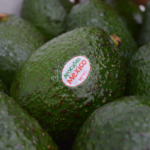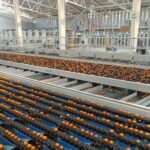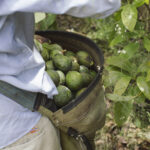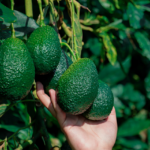Avocado production will suffer due to climate change

A report published by Christian Aid charity shows that avocado production is under threat due to climate change. The organization reports that avocado regions are expected to decline between 14% to 41% by 2050.
Avocados are abrasive for the environment due to their high need for water, a characteristic that makes the fruit highly susceptible to climate change in a hotter, drier, more drought-prone future. The fruit can take 320 liters of water to grow, a water footprint four times higher than oranges and ten times higher than tomatoes.
The shrinkage depends on how quickly global emissions are reduced, and "the worse the climate scenario, the more rapidly prime avocado growing regions will shrink."
Mexico, the world's biggest producer of avocado, could see its potential avocado growing areas reduced by 31% by 2050 even if the global average temperature rise was limited to under 2C, and as much as 43% if the global average temperature rises towards 5C.
This could create a repercussion for local communities. The fruit plays an important part in the country's culture and job market, as of 2013, the average Mexican consumed over 9kg of the fruit per year and avocado production has created about 78,000 direct and permanent jobs and 310,000 indirect and seasonal jobs.
Although avocados have played a significant part in the country's economy and culture, the crop has also caught the eyes of drug cartels and criminal organizations.
The report ‘Getting Smashed, The Climate Danger Facing Avocados," shows that growers in Michoacán, the biggest avocado production region in the country, have been subjected to land grabs or extortion, as criminal gangs have reportedly made more than $188 million per year selling so-called blood avocados onto the UK market.
The country is expected to face a a 2-3C rise in average temperature and a 50-100mm decrease in precipitation by the middle of the century assuming moderate greenhouse gas emission scenarios.
Other countries like Spain, Peru, Chile, and Burundi, are also part of the research looking into rising temperatures and climate adversities.
In Spain, much of the production is centered on the Southern coast but due to heatwaves, the need for water supply is increasing in the region, making avocado production increasingly difficult. "In the 2022 heatwave, the reservoir nearest to what is Europe’s largest avocado-growing area in Malaga Province only had 12% of its former volume," the report states.
Chile has been in the commercial avocado-growing business for over 100 years. 99% of the country's avocado exports are the Hass variety, which is mostly exported to Europe. Chile has seen several difficulties in climate such as heatwaves and droughts, which are expected to return at a higher frequency in the future.
According to the report, 2022's heatwave is "estimated to have an estimated return of 20 years, but increasing climate change will make such heatwaves more common and hotter."
In Burundi, the fruit is being used to tackle food insecurity. It's the lowest producer and exporter of all the aforementioned countries, but it's currently suffering a lack of water for local communities due to low rainfalls. The country's drought is used as a cautionary tale.
“In Burundi climate change is a huge problem, especially for avocado growers," said Jolis Bigirimana, avocado farmer and founder and president of Farmer's Pride Burundi. "We are experiencing hot temperatures, heavy rain, and erosion which is having a terrible impact on farmers productivity and their income"
Some of the report's recommendations are to increase climate finance to boost adaptation, tackle the root cause by cutting emissions and accelerating the transition from dirty to clean energy, and make major polluters pay loss and damages.














































